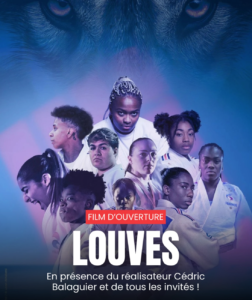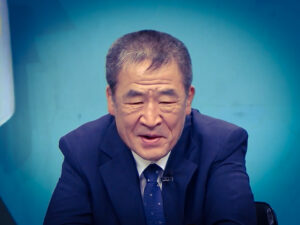[FRA – Cet article est une reprise de la version anglaise d’un entretien mis en ligne en septembre 2016 sur l’ancienne version du site Internet du bimestriel français L’Esprit du judo. Cette version anglaise n’était plus visible depuis la mise à jour dudit site à l’automne 2020. La voici à nouveau.]
[ENG – This article is a reprint of the English version of an interview published online in September 2016, on the old version of the website of the French bimonthly magazine L’Esprit du judo. This English version was no longer visible when the website was updated in autumn 2020. Here it is again.]

Born on the 28th of February 1986 in Bellevue, Washington (USA), Travis Stevens has left his mark on his era with a face that could have come straight out of a Sergio Leone film. His fingers are plastered up to his wrists and his black belt in brazilian jiu-jitsu turns him into a nightmare as soon as his opponent puts a knee to the ground: at the age of 30 and after ten attempts (three Olympic Games, seven World Championships), the pupil of Jimmy Pedro and old partner of Marti Malloy finally won on 9th August 2016 the Olympic silver medal that his perseverance deserved. As a bonus to the article we wrote about him in EDJ#64, here is a rare and short interview with the man behind the medal, a tough guy aged by failures, life’s challenges and all that he learned thanks to the numerous competitions he finished sitting in the crowd. If you are looking for a synonym for the verb « to fight », just try « Travis Stevens ». – JudoAKDReplay#006.
A French version of this interview is available here.

What are the main differences between the Travis who ended fifth in London and the one who ended with a silver medal four years later in Rio?
The support of my relatives. Everyone of my team members and coaches felt like I was robbed in the semi of London. Over the course of the quad everyone pulled together to ensure that I would not be denied a second time from stepping on the podium. Having Kelita Zupancic, my girlfriend, by my side through the quad helped more that I’m probably willing to admit. She has taught me a lot over the years.
In Chelyabinsk 2014 you told me that you had to think about why you didn’t manage to have a medal in World Championships or Olympic Games. What did you change in your preparation to reach that goal today, aged 30?
One day, I was sitting in the hospital dealing with my knee. No one was allowed to see me, so I had a lot of time to reflect on judo as a whole and my career. I came to the realization that no one remembers who medaled at the Olympics or World Championships. Those competitions just feed the egos of athletes. They are not a direct reflection of how talented an athlete is. I even put it to the test asking people who medaled at a particular weight class at an event and people would stumble or struggle to remember. The fighters people remember are the ones who were touched emotionally or have invested interest in a fighter. So I told myself this, I’ve been a Top 5 player in the world since 2011 (I dropped out a few times but over all) I’ve proven that I was one of the best players in the division. I don’t need a World Championships or Olympic Games medal to prove anything. People forget about medals, only fighters remains.

You were talking about your knee. Last year, you were close to cut your leg off. What happened exactly?
In July 2015, I had come off a Pan Am Games gold medal in Toronto, Canada. The night that I had won I got on a plane and flew directly to Russia for the Tyumen Grand Slam, where I had to weigh in five days later. All my bags got lost and I had to lose ten kilos with just a sauna over two days. My immune system became non-existent. Over the course of the weight cut I had gotten an infection in my knee. I couldn’t shake the hand of my opponent in Tyumen, Antonio Ciano from Italy, because I had to run to the toilets to throw up. When I got home the swelling got worse and worse by the time Worlds came around, there were days I couldn’t put weight on it to walk. I had seen five doctors and none of them could figure out what the issue was.
But you managed to fight in Astana [he got choked in his first match by Alexander Wieczerzak from Germany, ed]. What happened after that?
After the Worlds, I went home and they rushed me to the emergency room and almost cut my leg off to stop the infection from spreading. They hospitalized me for seven days and I went in for surgery a few days after stabilizing the infection from spreading. I spent the next two months doing in home care, where a nurse would visit me three times a week. The infection was attacking my skin, muscle, and bone in my leg. After a successful surgery, the surgeon told me I’ll need a knee replacement later on for the damage done to the bone.
You also had this concussion in Düsseldorf 2015 which made you stay at home a couple of weeks wearing sun glasses, you are known on the Tour as one of the men with the most destroyed fingers… How is your body for your old days?
It’s quite better since a couple of months [He smiles]. This past year I have worked with the USOC and Scott Georgaklis, a new trainer, and both of them have made me healthier than ever. I’m so thankful that I was able to put together six months of injury free training which was a first in my career. Although my hands are damaged beyond repair we found ways to work around them.
In Rio you gave a lesson to the world with your ne-waza skills. How do you explain such a difference of level with the other players?
I don’t see it as if I have good ne-waza. It’s just neglect by the rest of the world. A lot of top players at camps choose not to do ne-waza. I’m not even sure if they train it at home or just use it for a warm up. Kayla and I both made the Olympic final using almost entirely ground work.

What are your plans now? September ’16 looks a little bit funnier than September ’15, right? And I guess you’re not weighing exactly 81 kg right now [Smile]…
Considering I’m not in a hospital bed this year it’s going a lot better [He smiles]. And yes, I currently haven’t stepped on a scale so I have no idea how much I weigh. All though with that being said I know I couldn’t make weight for 81 [He laughs]. Since the Olympics have ended I have been on the road seeing family. I’ve spent a week in Toronto visiting Kelita’s family and a week in Seattle visiting mine. Then we both go on vacation to a beach in North Carolina. Then it’s back to training life in October. I’ve also finished setting up my new school Fuji Gym. I’m also in negociations with USA Judo to figure out my future if i’m going to continue competing and training. Right now I don’t have any competitions for USA Judo for the rest of the year. But I am competing just for TSV Abensberg at the Golden League Final in December. I’m really looking forward to it as well. – Interview by Anthony Diao, summer 2016. Opening picture: Paco Lozano/JudoAKD.
A French version of this interview is available here.
More Replays in English:
- JudoAKDReplay#001 – Pawel Nastula – The Leftover (2017)
- JudoAKDReplay#002 – Gévrise Emane – Turn Lead into Bronze (2020)
- JudoAKDReplay#003 – Lukas Krpalek – The Best Years of a Life (2019)
- JudoAKDReplay#004 – How Did Ezio Become Gamba? (2015)
- JudoAKDReplay#005 – What’s up… Dimitri Dragin? (2016)
- JudoAKDReplay#007 – Sit and Talk with Tina Trstenjak and Clarisse Agbégnénou (2017)
- JudoAKDReplay#008 – A Summer with Marti Malloy (2014)
- JudoAKDReplay#009 – Hasta Luego María Celia Laborde (2015)
- JudoAKDReplay#010 – What’s Up… Dex Elmont? (2017)
More articles in English:
-
- JudoAKD#001 – Loïc Pietri – Pardon His French
- JudoAKD#002 – Emmanuelle Payet – This Island Within Herself
- JudoAKD#003 – Laure-Cathy Valente – Lyon, Third Generation
- JudoAKD#004 – Back to Celje
- JudoAKD#005 – Kevin Cao – Where Silences Have the Floor
- JudoAKD#006 – Frédéric Lecanu – Voice on Way
- JudoAKD#008 – Annett Böhm – Life is Lives
- JudoAKD#009 – Abderahmane Diao – Infinity of Destinies
- JudoAKD#010 – Paco Lozano – Eye of the Fighters
- JudoAKD#011 – Hans Van Essen – Mister JudoInside
- JudoAKD#021 – Benjamin Axus – Still Standing
- JudoAKD#022 – Romain Valadier-Picard – The Fire Next Time
- JudoAKD#023 – Andreea Chitu – She Remembers
- JudoAKD#024 – Malin Wilson – Come. See. Conquer.
- JudoAKD#025 – Antoine Valois-Fortier – The Constant Gardener
- JudoAKD#026 – Amandine Buchard – Status and Liberty
- JudoAKD#027 – Norbert Littkopf (1944-2024), by Annett Boehm
- JudoAKD#028 – Raffaele Toniolo – Bardonecchia, with Family
- JudoAKD#029 – Riner, Krpalek, Tasoev – More than Three Men
- JudoAKD#030 – Christa Deguchi and Kyle Reyes – A Thin Red and White Line
- JudoAKD#031 – Jimmy Pedro – United State of Mind
- JudoAKD#032 – Christophe Massina – Twenty Years Later
- JudoAKD#033 – Teddy Riner/Valentin Houinato – Two Dojos, Two Moods
- JudoAKD#034 – Anne-Fatoumata M’Baïro – Of Time and a Lifetime
- JudoAKD#035 – Nigel Donohue – « Your Time is Your Greatest Asset »
- JudoAKD#036 – Ahcène Goudjil – In the Beginning was Teaching
- JudoAKD#037 – Toma Nikiforov – The Kalashnikiforov Years
- JudoAKD#038 – Catherine Beauchemin-Pinard – The Rank of Big Sister
- JudoAKD#039 – Vitalie Gligor – « The Road Takes the One Who Walks »
- JudoAKD#040 – Joan-Benjamin Gaba and Inal Tasoev – Mindset Matters
- JudoAKD#041 – Pierre Neyra – About a Corner of France and Judo as It Is Taught There
- JudoAKD#042 – Theódoros Tselídis – Between Greater Caucasus and Aegean Sea
- JudoAKD#043 – Kim Polling – This Girl Was on Fire
- JudoAKD#044 – Kevin Cao (II) – In the Footsteps of Adrien Thevenet
- JudoAKD#045 – Nigel Donohue (II) – About the Hajime-Matte Model
- JudoAKD#046 – A History of Violence(s)
- JudoAKD#047 – Jigoro Kano Couldn’t Have Said It Better
- JudoAKD#048 – Lee Chang-soo/Chang Su Li (1967-2026), by Oon Yeoh
And also:
- JudoAKDRoadToLA2028#01 – Episode 1/13 – Summer 2025
- JudoAKDRoadToLA2028#02 – Episode 2/13 – Autumn 2025
JudoAKD – Instagram – X (Twitter).



